
Japanese Kanji Elements Clip Art Set Daily Art Hub Free Clip Art
Animals / Nature Misc. What is "kanji" and how is it different from kana? Kanji are Chinese characters that first started being used for written Japanese around the 5th century AD. T Chinese characters ("hànzì" in Mandarin) are logograms, or symbols that represent words. Today, Kanji is still widely used in Japanese.

Japanese Kanji With Meanings. Stock Image Japanese language lessons
1 Japanese Phrases 1.1 Words related to Japanese Phrases 2 Basic Japanese Phrases 2.1 Japanese Phrases used when meeting someone 2.1.1 Basic Day Greeting Phrases 2.1.2 Japanese Phrases in Farewell 2.1.3 Japanese Phrases with Gratitude 2.1.4 Japanese Phrases with Apology 2.2 Japanese Phrases at Home 2.3 Celebration Phrases
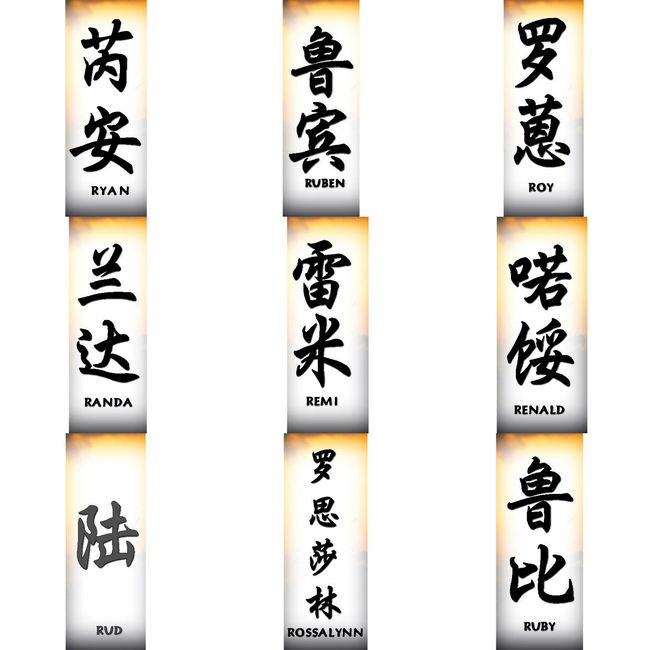
Quotes In Japanese Kanji. QuotesGram
The word 漢字 (kanji) means "Han characters", and its pronunciation is a version of the Middle Chinese word for such characters [hɑn˥˩ d͡zɨ˥˩/xɑn˥˩ d͡zɨ˥˩], filtered through Japanese phonology. Han refers to the Han Dynasty (206BC - 220AD) and in Mandarin Chinese characters are known as 汉字 [漢字] (hànzì).

Some more kanji Frases em japonês, Palavras japonesas, Palavras chinesas
47 Japanese Proverbs about Life, Love, and Wisdom to Inspire You (with English translations) Japanese proverbs and idioms are filled with ancient wisdom. And some of them you may have already heard and didn't know they originated from Japan! These Japanese proverbs are called ことわざ ( kotowaza ).

Basic Japanese Words, Japanese Phrases, Study Japanese, Japanese Kanji
Best ways to learn Katakana These two alphabets are the bread and butter of Japanese and should be understood before moving into the dark world of Japanese Kanji, where the headaches can truly begin! Most Common Kanji | 上 Most Common Kanji | 下 Most Common Kanji | 出 Most Common Kanji | 入 Most Common Kanji | 見 Most Common Kanji | 学
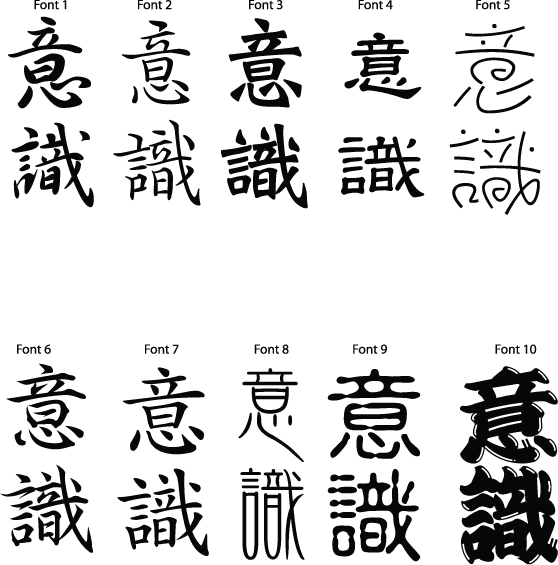
Kanji Sayings And Quotes. QuotesGram
Welcome to Kiki's Kanji Dictionary. If you're studying written Japanese, Kiki can help you learn more about Kanji characters and compounds. If you can't read Japanese and are looking for kanji translation you might visit Takanori Tomita . His site explains the different writing systems for Japanese, and he can translate phrases or help you find.

kanji signs and meanings Bing Images Japanese calligraphy words
Wa (和) Wa is the concept of harmony and peace, but it is more than that. It can refer to something as simple as plating your food for dinner, or a situation with more depth such as avoiding conflict or keeping the peace. In Japanese culture, wa is all-pervasive, contributing to architectural design, traditional clothing, and even politics.
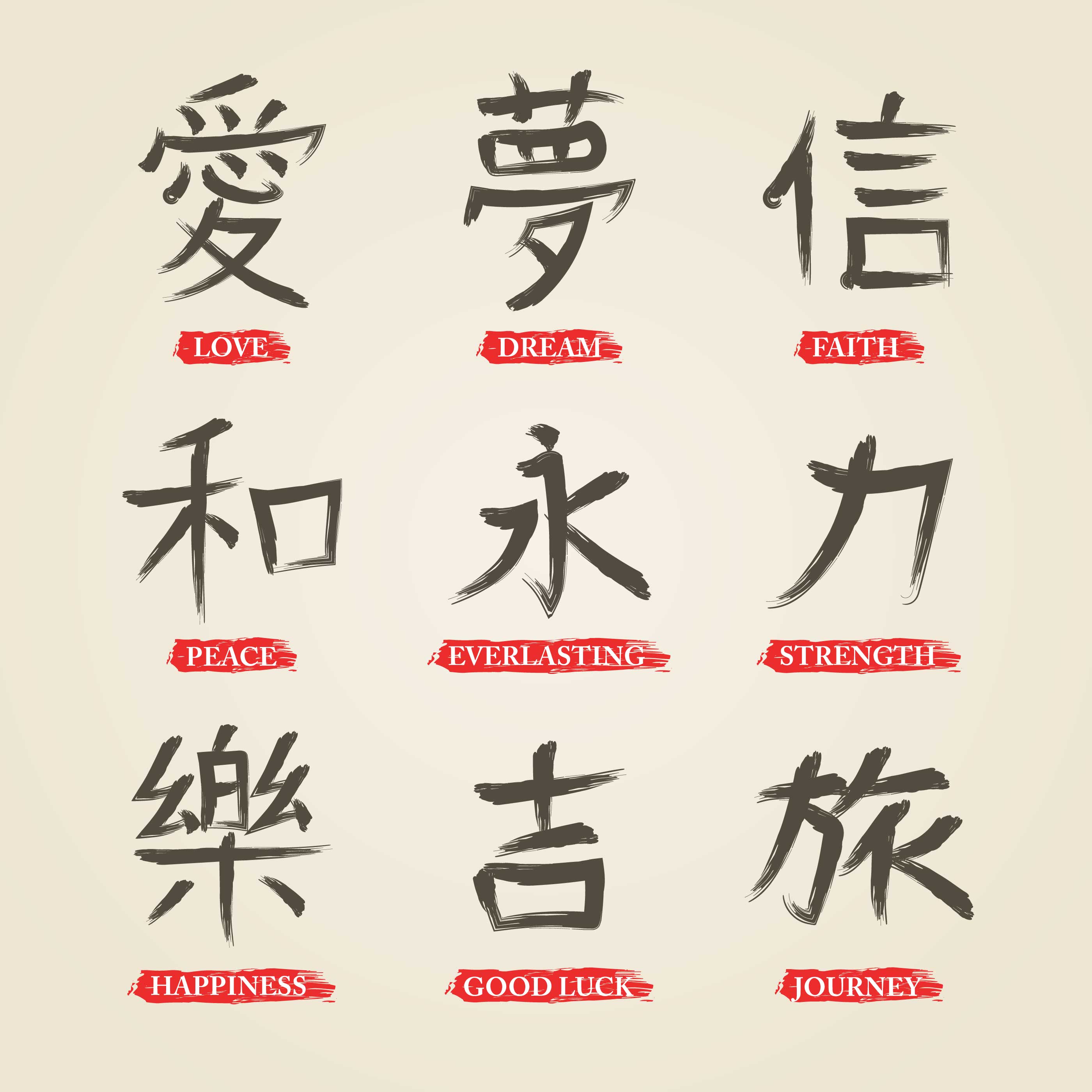
Japanese Kanji Words With Translation 171673 Vector Art at Vecteezy
Kouhai (後輩): Junior. Koukousei (高校生): High school student. Kowai (怖い): Scary. Kurae (くらえ): An anime fighting phrase that means "behold" or "eat this!". Often shouted before the execution of a deadly technique in fights, and sometimes sounding like "ku-rake" in the heat of everything.
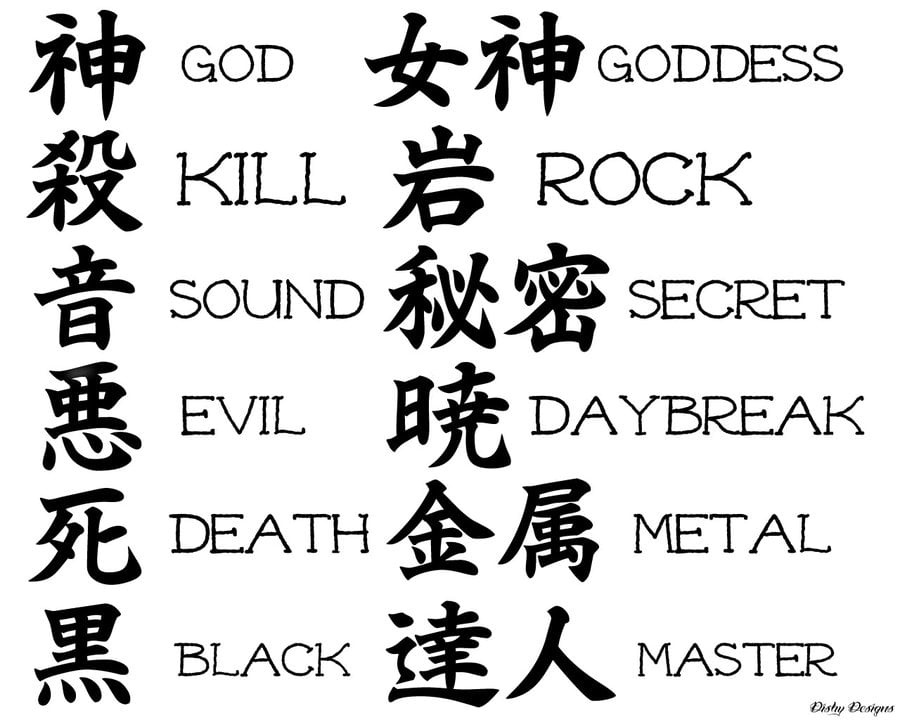
Kanji Sayings And Quotes. QuotesGram
Idioms are used so commonly in Japanese that you can hear them in everything from casual conversations to news and cultural programs. In this post, we'll get to know 42 Japanese idioms and proverbs that you might encounter on your Japanese learning journey. Contents Japanese Idioms: Kanyouku Japanese nature idioms 1.

kanji radicals Learn Basic Japanese, Basic Japanese Words, Japanese
Japanese N5 Kanji List - The 100 Kanji You Need to Know for the JLPT N5 Japanese Kanji for Numbers Japanese Kanji for Time Japanese Kanji for People & Things Japanese Kanji for Places & Directions Japanese Kanji for Verbs Japanese Kanji for Adjectives Japanese Kanji Practice: The Best Ways to Memorize Kanji A Final Word on Learning Japanese Kanji

Learn to read and write Kanji and speak Japanese fluently. Japanese
Hiragana and Katakana Hiragana and katakana are both phonetic (or syllabic). There are 46 basic characters in each. Hiragana is used primarily to spell words that have Japanese roots or grammatical elements. Katakana is used to spell foreign and technical words ("computer" is one example), or used for emphasis. Romanji
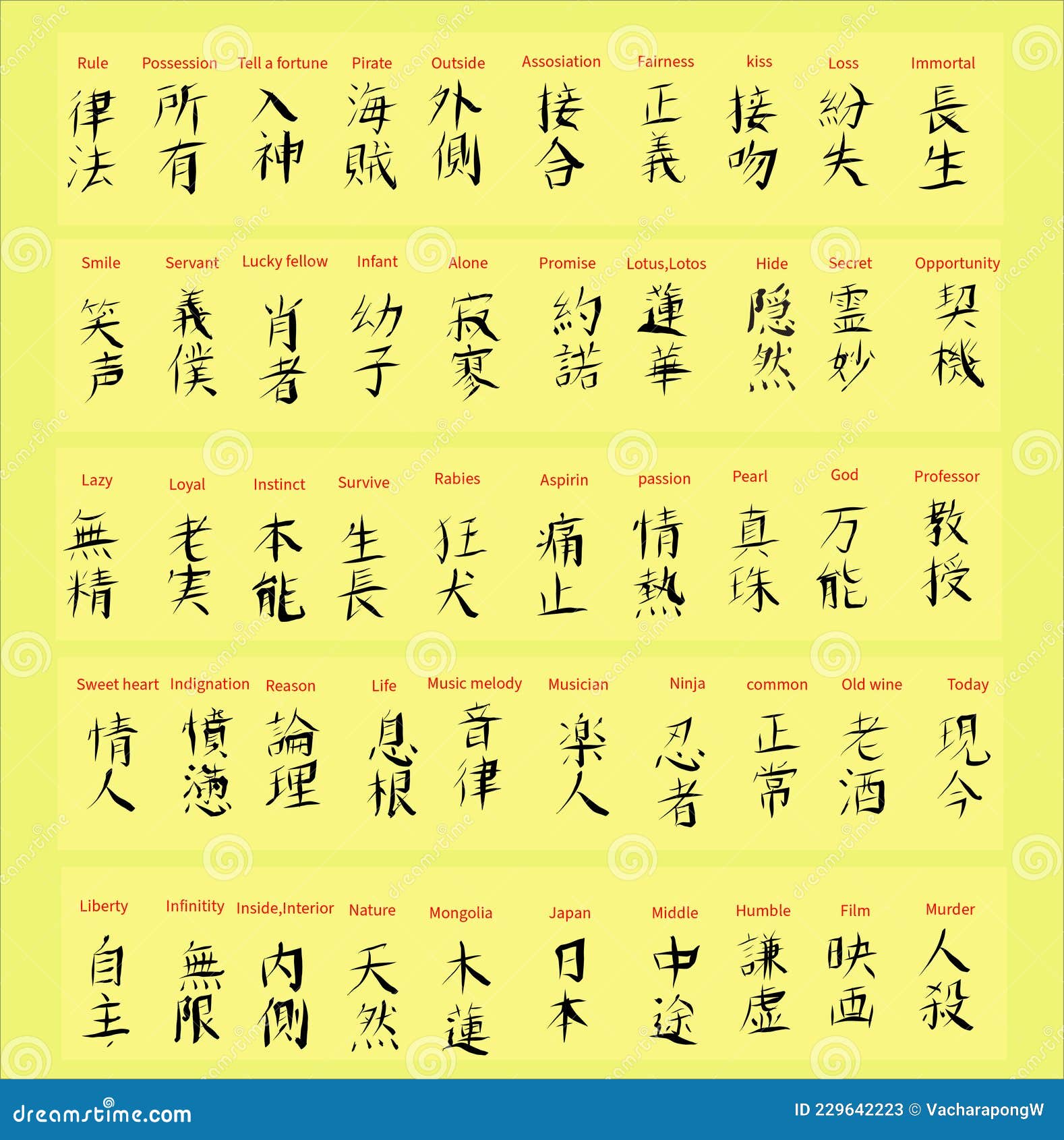
Japanese Words And Phrases, Expressing Gratitude, Appreciative Words
The first Kanji we will learn is 「人」, the character for 'person.'. It is a simple two-stroke character where each stroke starts at the top. You may have noticed that the character as rendered by the font is not always the same as the hand-written style below. This is another important reason to check the stroke order.

Japanese Art Symbols and Meanings Japanese Kanji Tattoos Symbols
カタカナ Those are katakana, an alphabet Japanese people use to write down words that aren't originally Japanese. But maybe, mixed in with those characters, you spot a big, intimidating blob, like this: 漢字を読めますか Those are kanji, and they've been intimidating new learners of Japanese for, well, basically as long as they've existed.

Japanese Kanji Translation & Design by Kanji Translator Kanji Sensei
( Ikkou, "Let's go!") Here's a Quick "Cool Japanese Words" Video I Made To Get You Started: 20 Cool Japanese Words and Japanese. 20 Cool Japanese Words and Japanese Slang to Start Using Now! Enjoy watching the video first! I'll share some of the coolest Japanese words, and how to pronounce them.
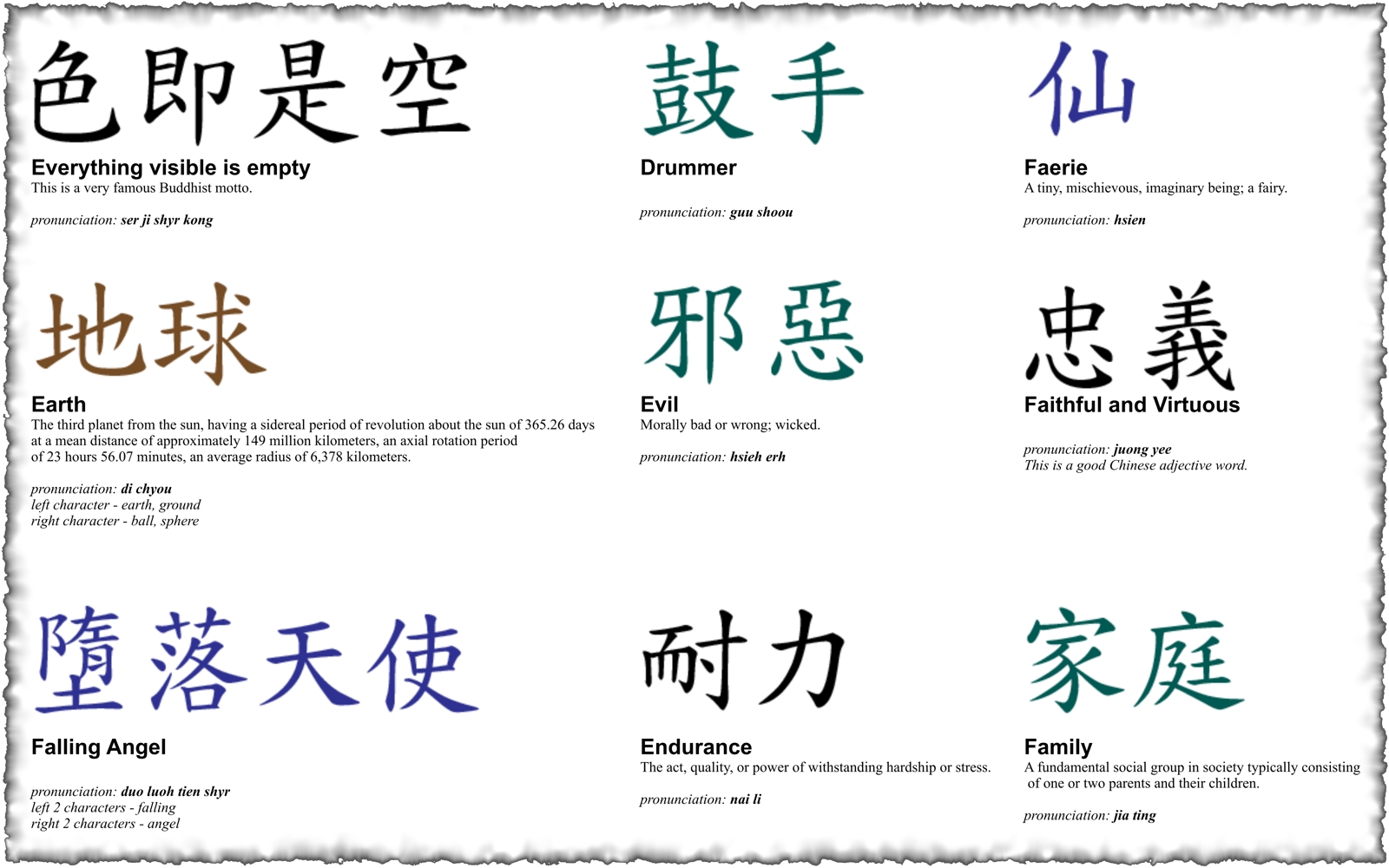
Kanji Sayings And Quotes. QuotesGram
#1 Konnichiwa (こんにちは) - Hello #2 Ohayou gozaimasu (おはようございます) - Good morning #3 Konbanwa (こんばんは) - Good evening #4 Moshi moshi (もしもし) - Hello (but only if you're on the phone or something like Skype) #5 Ogenki desu ka? (お元気ですか) - How are you? #6 Genki desu (元気です) - I'm good/I've been doing well, thanks
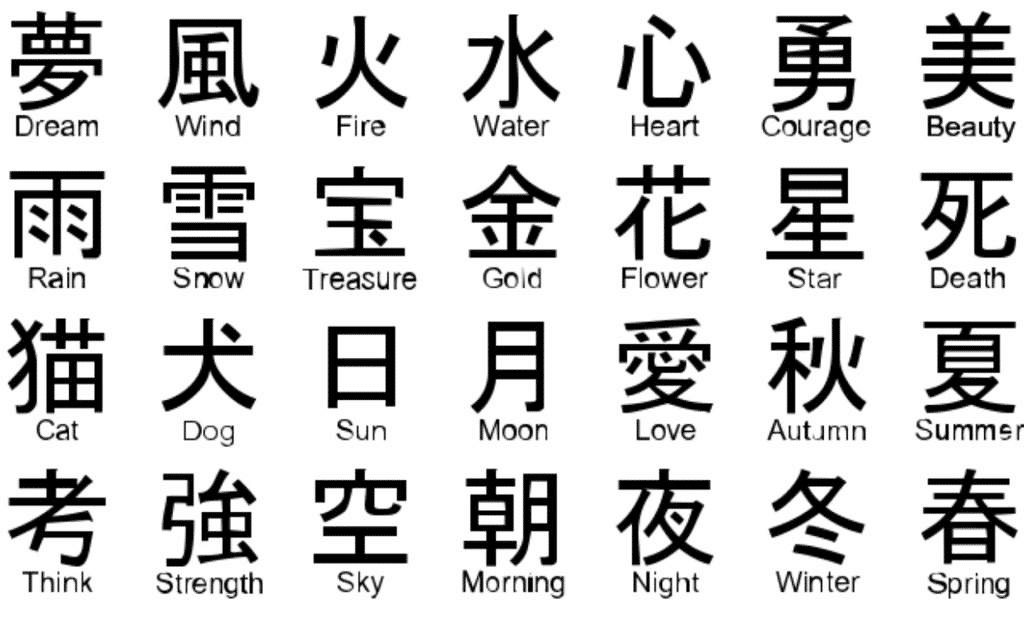
Basic Japanese Phrases to Learn First TruFluency
Japanese vocabulary - 単語 Now that you've at least started learning the Japanese alphabet and Katakana, let's learn some basic vocabulary words and simple Japanese phrases. I will list the Kanji, Hiragana, Romaji (the word sounded out using English letters), and the English meaning for each Japanese word or phrase.